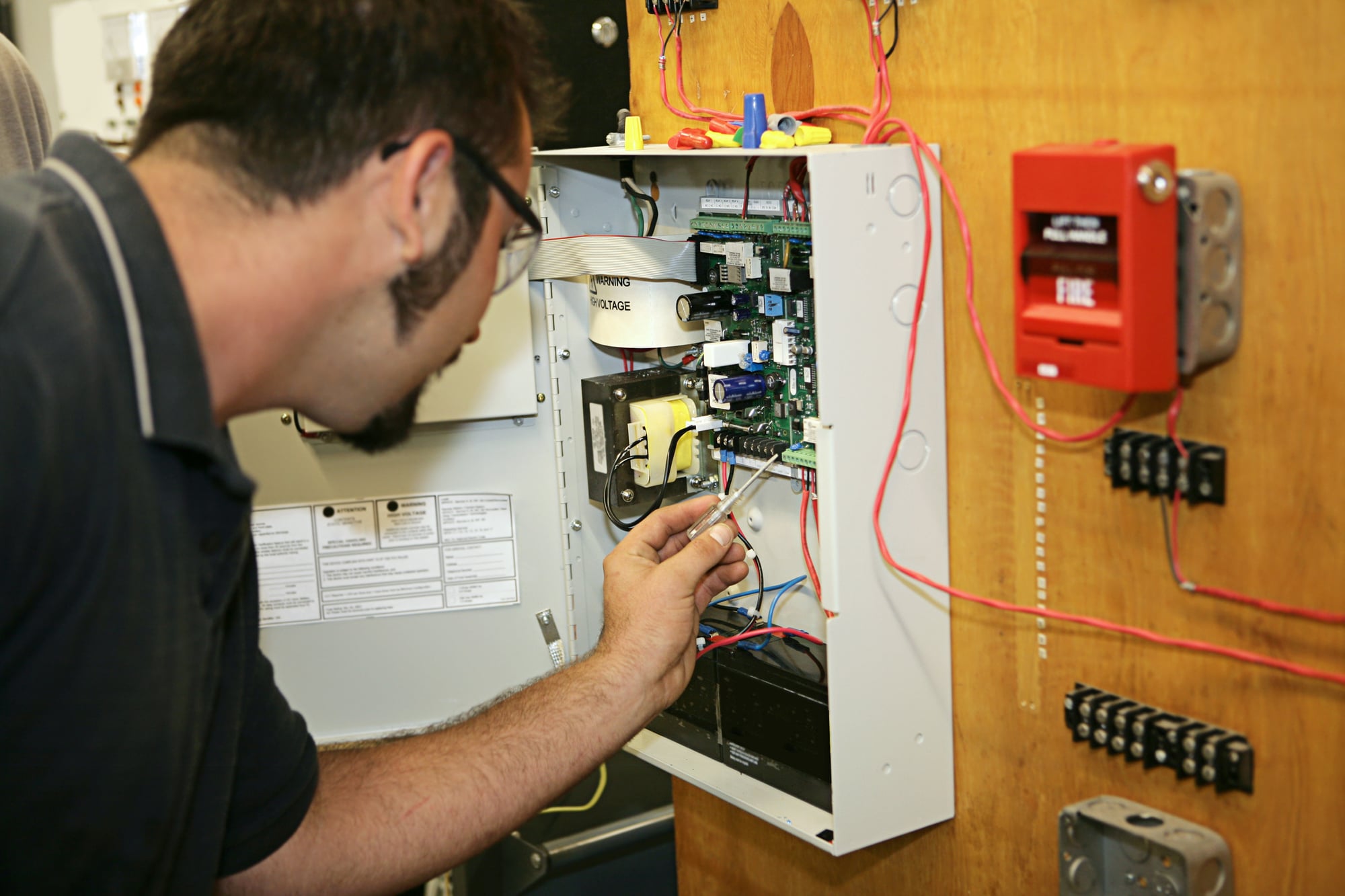In 2017, there were an estimated 110,000 nonresidential building fires. Fires can cause damage to your building, and more importantly, harm anyone inside.
Having a fire alarm system will help reduce damage and prevent anyone from getting hurt. Below we'll review how a commercial fire alarm system works.
Components Of A Fire Alarm
There are many components to a fire alarm system. To take care of any issues that may arise, it's best to understand all the components.
Control Panel
The control panel monitors and commands the initiating devices. It’ll send out a signal to the other devices if there is an issue. The control panel has a display which will allow you to:
- Disable alarms
- Manually signal alerts
- Reset or reprogram the system
Power Supplies
The fire alarm system should have a primary and secondary (back up) power supply. There is normally some form of wire hookup as the main power supply, and batteries are installed as back up.
Initiating Devices
These devices tell the system when there is a fire or smoke nearby. You can get automatic and/or manual devices.
Automatic Devices can include:
- Heat Detectors
- CO2 Detectors
- Flame Detectors
- Photoelectric, Ionization, and In-Duct Smoke Detectors
- Water Flow Detectors
Manual Devices can include:
- Pull Stations
- Alarm Buttons
- Break Glass Stations
Notification Applications
These devices alert you if there is a fire nearby through a combination of light and sound. These can include:
- Sirens
- Speakers (voice evacuation systems)
- Flashing Lights (strobes)
- Horn-Strobes
Building Safety Interfaces
Interfaces make it easier for people to leave the building safely.
These can include:
- Exit lighting - shows you the way out.
- Ventilation systems - redirect any toxic smoke in the area.
- Magnetic Smoke Door Holders – close doors to prevent smoke from spreading.
- Duct Smoke Detectors – shut off fans or close dampers to keep smoke from spreading.
Communication Device
You need some way for the alarm to communicate with a professional monitoring system. Once the system has been notified, the fire can be taken care of. The device can be a phone line, network connection, and/or cellular communicator.
Other Potential Components
- Sprinklers
- Two-way communicators
- Fire Doors
- Elevator Recall
- Remote Control and Display Panels
- Checks the system status
- Start or silence the alarms
- Activate/deactivate different safety components in the building
Types Of Commercial Fire Alarm Systems
There are two types of commercial fire alarm systems, conventional and addressable.
Conventional
Conventional systems will identify which zone of a building is in trouble. It won’t inform you which part of the system was triggered. So, you may know which floor the fire is on, but not the exact location.
These systems tend to be cheaper and are mainly used in smaller buildings.
Addressable
An addressable system connects all devices through one wire. This wire is attached to the control panel.
These systems will identify which device was triggered. You'll know the exact location of the fire. They're vital for larger buildings.
How A Fire Alarm System Operates
Once a device is triggered the control panel will send out a signal. This signal is sent to your professional monitoring center.
The operators in the monitoring station will check to see if it’s a false alarm. If it’s a genuine alarm they’ll contact the fire department.
Do You Need A Fire Alarm System?
Commercial fire alarm systems are vital for your building's and its occupants' safety. Now that you understand them you'll be able to make more educated decisions when a fire breaks out.
Reach out to us today if you have any questions or concerns.


